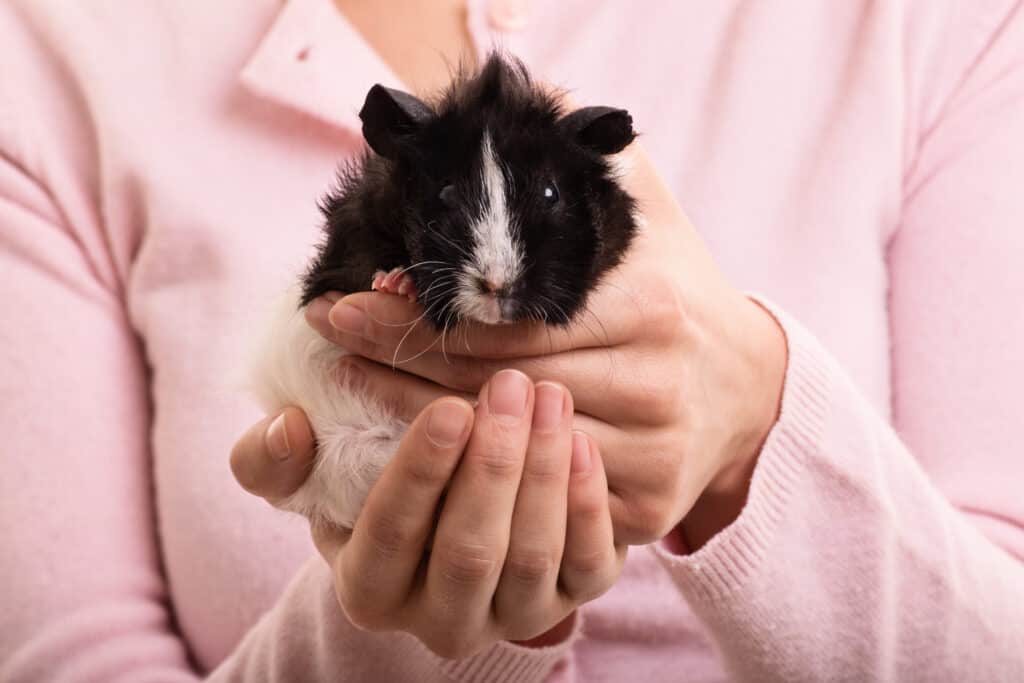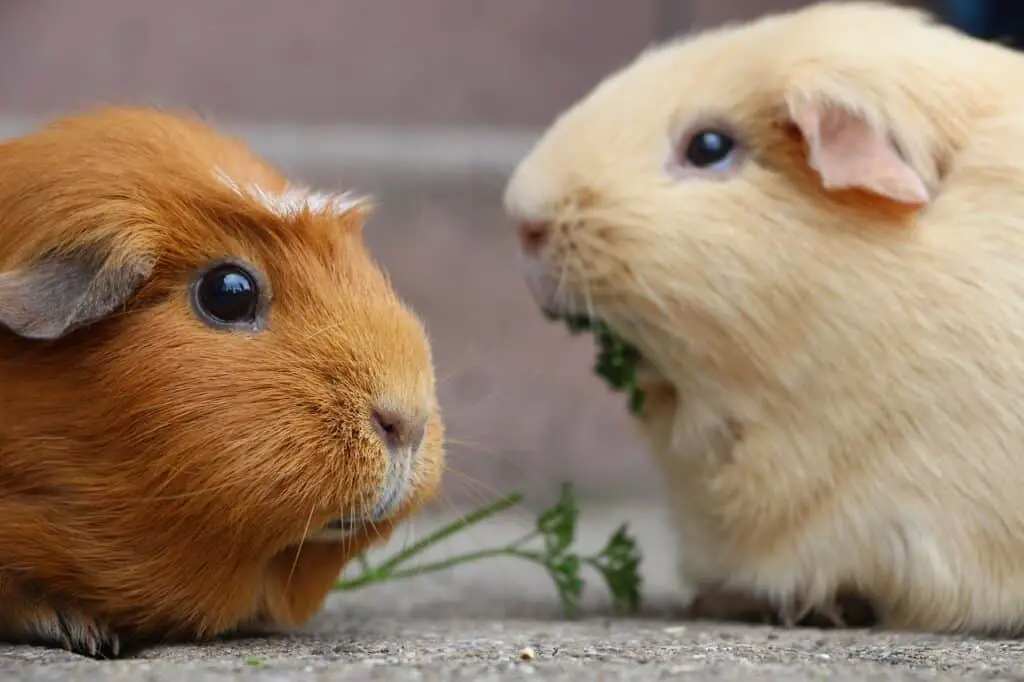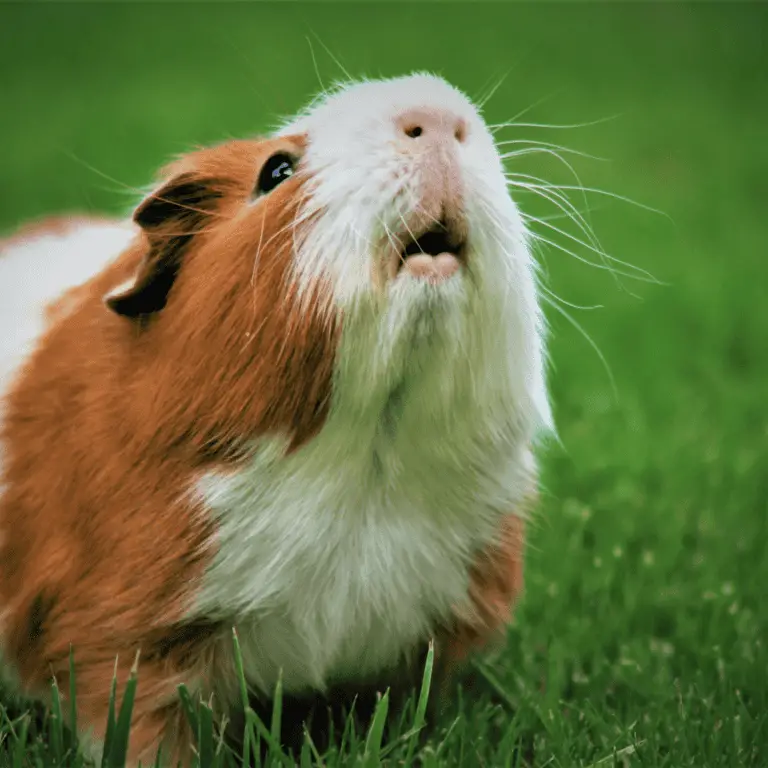how much can a guinea pig cost?
Guinea pigs are a popular pet choice for many, and they are known for being relatively inexpensive.
However, the cost of a guinea pig can vary significantly depending on where you purchase it from, what breed you buy, and other factors.
To help potential owners understand how much they can expect to pay, this article will look at the average costs associated with owning a guinea pig.
We’ll discuss the prices of purchasing one from pet stores and breeders as well as ongoing expenses such as cages, food, and vet care.
By understanding these costs, prospective owners can make an informed decision about whether a guinea pig is the right pet for them.
How Much Are Guinea Pigs on Average?
When it comes to owning a guinea pig, the upfront cost can be relatively reasonable. On average, a guinea pig will cost around $20-$50 from a breeder or pet store, depending on the breed.
This initial cost covers the guinea pig itself and some of the necessary items that come with care such as bedding, food, water dispensers and cage.
In addition to these items, you may also need to buy special guinea pig pellets and vitamin C supplements for your pet. After all of the initial setup costs have been met, the annual cost of owning a guinea pig is fairly low.
The estimated cost per year is around $200–$250 which includes regular veterinarian check-ups, food and supplies.
All in all, when it comes to much are guinea pigs on average, you should be prepared for an upfront cost of around $400 including shelter and supplies as well as an annual cost of about $200–$250 per year.

Is a guinea pig a good pet?
A guinea pig makes a great small pet for people of all ages. Guinea pigs, also known as “piggies”, are friendly and social animals that are easy to care for and bond with. They don’t require a lot of space like larger pets, but they do need enough room to move around comfortably.
Guinea pigs require fresh vegetables and hay as food, which can be relatively inexpensive, and they should have their cage cleaned regularly.
Guinea pigs can also be litter trained so you don’t have to worry about messes in the house.
If you enjoy cuddling with your pet, the guinea pig is the perfect choice because they love being held and will even give you little “licks” in return.
Overall, guineas are an ideal small pet that bring joy and companionship into any household.
How expensive is a guinea pig?
A guinea pig is a small and friendly domesticated rodent that makes an ideal pet. They are not to be confused with the actual guinea, which is a type of bird. Depending on where you purchase your guinea pig, they can range in cost from $20 to $45 per pig.
If you choose to adopt from a shelter, the cost may be even less. You will also need to factor in supplies such as food, bedding, housing and toys that can add up quickly.
The initial investment for a guinea pig can be substantial if you buy everything new; however, if you shop around or get creative with your supplies you can find ways to save money.
Another thing to consider when budgeting for a guinea pig is ongoing medical costs like regular checkups, vaccinations and treatments should health issues arise.

Should I get 2 or 3 guinea pigs?
When deciding whether to get two or three guinea pigs, it is important to consider the amount of space and time you have available for them.
Guinea pigs are social animals, so getting two or more means they’ll have companionship and won’t be lonely. With two guinea pigs, you’ll need a cage that’s at least seven square feet in size.
If you opt for three, the cage should be at least nine square feet. Keep in mind that they also need exercise outside their cage, such as supervised playtime in an area with no hazards like electrical cords or small spaces.
In addition to providing your guinea pigs with enough space, you will also need to commit to spending time with them daily. This could include cleaning out their cage and giving them fresh vegetables, hay and water every day.
Guinea pigs are wonderful pets who require lots of love and care – so if you’re willing to dedicate the necessary time and space for these furry friends, then two or three guinea pigs would make great companions!
What Do You Need for Guinea Pigs?
When it comes to caring for guinea pigs, there are several things you will need to ensure your guinea pig is happy and healthy.
First, you need a good-sized cage or hutch for your guinea pig. It should be large enough for them to move around freely and allow them plenty of space to play and explore. Make sure the bottom of the cage is lined with newspaper or straw to provide a comfortable bedding material.
Secondly, you will need food and water dishes specifically designed for guinea pigs, as well as hay and other treats. You can also provide toys and tunnels for your guinea pig to keep them entertained.
Lastly, don’t forget about bedding materials such as shredded paper or sawdust that help maintain their cage cleanliness.
With the right combination of these items, your guinea pig will have a safe and comfortable home that they enjoy spending time in!

Why Is It Important to Buy More Than One Guinea Pig?
It is important to buy more than one guinea pig when considering a pet, as guinea pigs are social animals and need companionship from other guinea pigs in order to be happy and healthy.
Having two or more guinea pigs also allows them to have plenty of space to run around in their enclosure, along with having enough bedding for both of them.
Plus, having two guinea pigs instead of just one can help prevent boredom, as they can play and interact with each other. When buying two or more guinea pigs at once, it is important to make sure that they are all compatible with each other.
This means that it is best to buy two of the same sex and approximately the same age so that they get along better. B
y having more than one guinea pig, you will be providing your pets with an environment that encourages a healthy lifestyle and lots of love!
Is a guinea pig right for your family?
If you are thinking about getting a guinea pig, there are some important factors to consider.
Before you make the decision to get a guinea pig, ask yourself if your family is ready for the commitment. Owning a guinea pig requires regular daily care such as providing fresh water and food, keeping their living environment clean, and giving them plenty of attention and love.
Guinea pigs may not be the best pet for households with children under six years old because they can startle easily. Also, it’s important to remember that guinea pigs live an average of five to seven years which requires long-term commitment from the family.
If your family is willing and able to provide proper care for a guinea pig, then it could be a great addition to your home!
Are Guinea Pigs Easy to Care For?
Guinea pigs are great pets and are relatively easy to care for. They require a lot of love, attention, and patience, but with some basic knowledge and consistent care, it is easy to keep guinea pigs healthy and happy.
A guinea pig’s diet should consist of hay, fresh vegetables and fruits, pellets, water, and occasional treats. Hay should be the main part of their diet as it provides essential vitamins and minerals that help with digestion. I
t is also important to provide them with an appropriate living environment such as a cage that provides enough room for exercise, places to hide when feeling scared or tired, clean bedding material (e.g., wood shavings or paper-based materials), chew toys for teeth grinding purposes, and a hideout from any predators or loud noises.
Additionally, regular grooming such as brushing their fur is important in order to keep them looking neat and tidy.
Taking good care of a guinea pig can bring about many years of joy for both you and your guinea!
What should I check before buying a guinea pig?
When you decide to buy a guinea pig, there are several important things that you should check before making the purchase.
First, make sure you are buying from a reputable breeder or pet store. This will ensure that your guinea pig is healthy and has been properly cared for.
Second, consider the cage size. Guinea pigs require plenty of room to move around and exercise, so get them an appropriately sized cage.
Third, make sure your guinea pig is getting enough vitamin C in its diet. Vitamins C supplements can be used if needed to supplement the diet.
Lastly, remember that guinea pigs live for up to 10 years, so be prepared for a long-term commitment!
Doing these simple checks before you buy a guinea pig will help ensure that your pet gets the best start in life possible!
How Much Does The Cage Cost?
The cost of a cage for a guinea pig depends on the size, materials and features you are looking for. For one guinea pig, an average cost is around $50-$150.
However, if you are looking for something larger or with more features like a ramp or shelf, then the price can be much higher. Additionally, if you have multiple guinea pigs then you will need to buy a larger cage which can cost up to several hundred dollars.
Make sure to research different options and prices before making your purchase so that you can find the best deal for your guinea pig’s cage.
Necessary Items for Your New Guinea Pig
When getting a new guinea pig, it is important to make sure you have all the necessary items for your pet.
A cage for your guinea pig should be large enough for the animal to move around easily.
Bedding such as wood shavings or hay should also be in the cage, and you can find these at a pet store. Pellet food is another necessity and should be available at most pet stores.
Vitamin C is also important since guinea pigs need it in their diet; they can get this from certain foods but may need a supplement if not included in their regular diet.
The average cost of setting up your new guinea pig can range from $50-$100 depending on what you buy and where you purchase it from.
This estimate does not include additional costs for multiple guinea pigs since guinea pigs are social animals and usually do better when living with another one of their kind.
Since guinea pigs need vitamin C, some extra money may need to be budgeted for that particular item as well.
Optional Items to Prepare for a New Guinea Pig
If you have decided to get a new guinea pig, there are a few optional items that you should consider buying. As a guinea pig owner, it is important to groom your pet regularly.
This can be done with a brush, which can vary in price depending on the type of guinea pig you have – for example, long-haired guinea pigs may require special brushes that cost more than average.
You will also need to buy food and bedding for your guinea pig; however, many pet stores offer these items in bundles at a discounted price. Finally, if you plan on having more than one guinea pig in the future, it may be worth investing in extra cages or habitats – these also vary in price and can be pricey depending on the size and materials used.
However, they provide enough space for your guineas to live comfortably together.
In conclusion, while some of these items are not necessary when getting a new guinea pig, they are definitely recommended for providing the best care possible.
How Much It Really Costs to Care for a Guinea Pig
Caring for a guinea pig can be a rewarding experience, but it’s important to understand the costs involved in providing proper care for your pet.
Guinea pigs, also known as cavies, require a significant commitment of time, money and resources. You’ll need to provide the basics such as food and water, bedding, housing and regular medical checkups.
Beyond the basics there are additional costs that you’ll need to consider such as buying hay and fresh vegetables, purchasing toys and chewables to keep your guinea pig mentally stimulated, plus any necessary medications or treatments if your pet falls ill.
All these costs add up quickly and can really start to add up over time. The good news is that with adequate preparation and knowledge of what’s needed to care for a guinea pig, you can ensure their welfare without breaking the bank.
Monthly Costs for Guinea Pigs
When it comes to the monthly costs for guinea pigs, there are a few things you will need to factor in. The first is the cost of the guinea pig itself.
Depending on where you purchase your guinea pig from, this can range anywhere from a few dollars to several hundred dollars.
On top of this, you will also have to pay for housing and food for your guinea pig. Guinea pigs require a large cage that should be cleaned out regularly as well as special guinea pig food which can cost several dollars each month.
You will also need to purchase bedding and other accessories such as toys and treats for your guinea pig. All in all, owning a guinea pig can be quite expensive if you don’t plan ahead and budget correctly!







